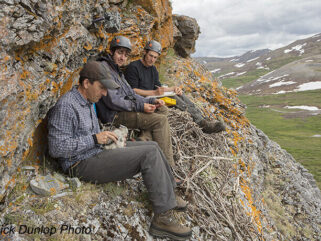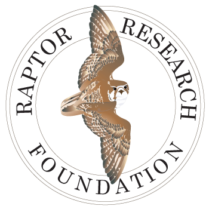Get Involved
OPPORTUNITIES TO GET INVOLVED WITH RRF LEADERSHIP ACTIVITIES
RRF is always on the lookout for volunteers to help run our society, regardless of experience, education, age, and nationality. Some people volunteer to benefit from the opportunity to network with and to meet new people; others to enhance their professional and personal development skills, and others are just altruistic and wish to ‘give something back.’ Whatever their motivation, each person is helping to shape the future of RRF, and, without these people, RRF could not function.
Positions range from those requiring a three-year commitment (officers, directors, editors, and committee chairs), to more flexible roles that are not so time-demanding (e.g. committee members, conference helpers, fundraisers). All positions are voluntary, and the only requirement is that you are a current RRF member.
All vacancies for senior roles (officers, directors, and editors) are advertised via email and on the website, with details about how to apply and the application deadlines. Vacancies for the more flexible roles (e.g. committee members) are on-going and an informal application can be made at any time with an email to the RRF president at president@raptorresearchfoundation.org.
We welcome all offers of help, and if you’re not sure which position may be the best for you, please get in touch so we can try to match your talents with our needs!
Current RRF Committees
If you are interested in joining a committee, please contact president@raptorresearchfoundation.org.

| Committee | Description |
|---|---|
| Awards | The Awards Committee is tasked with facilitating the annual activities for RRF grants and awards including advertising, receipt of applications, review of applications, notification of application status to applicants, posting annual winners on the RRF website, and announcing the winners at the annual conference banquet and in our electronic newsletter. The Chair acts as the manager for all the individual grant and award committees that have their own chair and members. |
| Bylaws | The Bylaws Committee provides regular recommendations for updates to the Bylaws as business practices evolve through time, or as necessitated by action of the Board of Directors. The Bylaws Committee presents the recommended edits to the Board for approval then coordinates with the President to ask the membership to vote on the amendments. |
| Charitable Giving | The Charitable Giving Committee manages activities related to estate planning, individual donors, fundraising campaigns, and foundation grants. The committee acknowledges donations with written letters for tax purposes and for building donor trust. |
| Code of Conduct | The purpose of the Code of Conduct Committee (CoCC) is to provide the RRF board with the information necessary for the board to evaluate and respond to allegations of violations of the Code of Conduct at RRF-sponsored meetings and events. |
| Communications | The communications committee oversees and coordinates the organization’s various interfaces with members and the public. The committee oversees the activities of our website, Twitter, Facebook, and newsletter. |
| Conferences | The main responsibilities for the conference committee include working with the RRF board and president to locate organizations willing and able to host the annual meeting, secure a financial agreement between the host organization(s) and RRF, and work with the local committee to ensure a successful meeting according to RRF annual conference guidelines. |
| Conservation | The Conservation Committee focuses primarily on writing and publishing Conservation Letters in the Journal of Raptor Research. Conservation Letters provide scientific reviews of matters affecting raptor populations globally. These letters are intended to be accessible to scientists, non-scientists, and policy makers, creating a go-to source for summaries of issues important to raptor conservation. Conservation Letters are intended to provide enough evidence-based examples that readers can appreciate the scope and prevalence of the issue described and begin to understand lessons learned and potential solutions. The Conservation Committee is composed of the set of authors working on Conservation Letters at any given time. Committee membership rotates as letters are initiated, developed, and completed. As much as possible, each Conservation Letter is authored by a team composed of a lead author, a subject matter expert, and an early career raptor researcher (undergraduate student, graduate student, or recently graduated student). The Committee Chair serves as an author if necessary. |
| Diversity, Equity, and Inclusion | Created in 2021, the DEI committee works to make RRF a more inclusive, equitable, and diverse organization. We are working to accomplish this by engaging members at conferences with activities including social events and outreach. We are also organizing DEI educational activities for RRF leadership. |
| Early Career Raptor Researchers (ECRR) | In 2009, the RRF Board created the Early Career Raptor Researcher (ECRR) Committee, with the charge of providing more services to and increasing participation of RRF’s student members and those that are early in their raptor researching career. The goal of the committee is to better prepare RRF’s membership to take on tomorrow’s raptor conservation challenges and provide structured opportunities for younger members to become more involved in RRF. The committee accomplishes this by planning events that provide training, professional development, networking opportunities, and other services to RRF’s younger members. ECRR’s are defined as current students or those who have graduated within the past three years. |
| Finance | The finance committee coordinates with the treasurer and president to provide recommendations on financial management of the society’s funds. The finance chair coordinates monthly oversight of spending and accounting and reports to the board on transactions. |
| Governance | The Governance Committee will make recommendations to the Board on revising the governance structure, impact on the current Bylaws, and the need for a mission revision. The Governance Committee will track RRF’s efforts to implement the strategic plan and advise on the needs for future visioning. Recommendations for significant changes or new budgets will require a board vote. |
| Late Career Raptor Researchers (LCRR) | The Late Career Raptor Researcher (LCRR committee), formed in 2019, comprises a group of veteran RRF members who offer the BOD and committees the benefit of their collective wisdom and deep knowledge of the society gained through multiple decades of membership. They serve RRF with a BOD liaison, but no designated chair. LCRR members are asked to commit at least two years on the committee. The committee meets when necessary, striving for one in-person gathering at the RRF meeting, and one electronic/teleconference. Issues addressed and considered may include, for example, conference and lodging cost reduction or savings for LCRR's who are retired or on a pension, mentoring Early Career Raptor Researchers, and conference access for those members with reduced mobility. Committee members are invited to gather and contribute anecdotes of RRF history from their past, or their fellow LCRR's for our member newsletter. |
| Legal | The Legal Committee provides legal guidance to RRF regarding policies, procedures, and contracts. The committee will recruit 1-3 volunteer lawyers to serve on the committee to provide expert advice. The committee will work with officers to review compliance with legal and tax requirements at the United States or state level. New policies created by the RRF Board will be reviewed by this committee before a final vote is recorded on the policy. |
| Membership | The Membership Committee is tasked with understanding the needs of members and presenting proposals to the Board to improve membership retention, approval, and growth. The committee provides annual updates to the Board with membership totals and renewal rates. The committee contacts lapsed members with requests to renew their membership. |
| Mentoring | This committee’s mission is to enhance access to and opportunity for quality mentoring in raptor related professions for all RRF members. The committee recognizes that access to such mentoring is not equally distributed across the globe and aims to focus a subset of our efforts particularly on providing quality mentoring to RRF-members who have limited access to this important facet of professional development. |
| Nominations | The Nominations Committee is responsible for recruiting RRF members for officer, director, and committee chair positions. It is critical for RRF to have energetic board members, and this committee is key to finding and recruiting talented volunteers to lead our foundation. Each spring, this committee advertises open positions in our monthly newsletter and through email. |
| Publication Future | This committee supports the Editor-in-chief in identifying current and future needs for the Journal of Raptor Research. This may include examining such topics as publication platforms, audience metrics, effectiveness of press releases, or peer reviewer engagement. The editor is a standing member of this committee. |
| Raptors and Museums Committee | The Raptors and Museums Committee works to bridge the gap of curatorial and field raptor ecology. This committee develops training, presentations, and other outreach material for members to help them with the legal, social and managerial aspects of preserving specimens from Raptor Research for later use by museums and other curatorial institutions. |
| Scientific Program | The mission of the scientific program committee is to support the conference committee by maximizing the quality of scientific oral and poster presentations while simultaneously ensuring the scientific program is as inclusive as possible. The chair delegates the review of proposed papers and posters to a large committee. Attention is paid to fitting the approved papers and posters into the scheduling parameters defined by the conference committee. |
